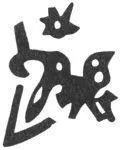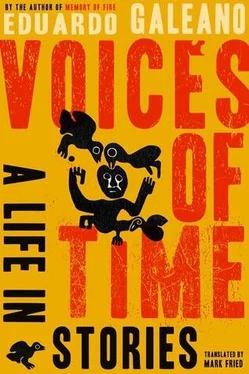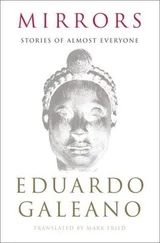
Statistics say that the poor of the world are many, but in fact they are many more than the many they seem to be.
A young researcher, Catalina Alvarez Insua, came up with a useful indicator to correct the calculations.
“Poor people are the ones they close the door on,” she said.
When she defined her criteria, she was three years old. The best age for looking out at the world and seeing.
From the far-flung villages of El Gran Tunal, Pedro and his burro Shorty set out for Mexico City.
Pedro walked more than he rode to give Shorty’s tired back a break. Both of them were getting on in years and the journey was long.
Walking the days away, they finally reached the grand plaza, the Zócalo. And they planted themselves at the door to the National Palace, where power resides.
There they remained, waiting for an audience. Pedro and Shorty had come to relate what was happening back home, and to demand justice. Coralled on land of stone and dust that offered a steady diet of dust and stone, the Indians of El Gran Tunal were extinct, officially, and did not even figure in the statistics. Out there justice was farther away than the moon, since the moon at least was visible.
There was no getting rid of Pedro and Shorty. Whenever they were chased from the plaza, they’d come right back. Nothing worked, not niceties, not nightsticks. Shorty would put on his donkey’s face and Pedro a face that said, you’re-wasting-your-time, we’ve-been-at-this-for-five-hundred-years.
At the end of 1997, at the age of eighty-seven, nearly dead from breathing the poisoned air of Mexico City, Pedro got an injection, the first of his life. Unmovable, he stayed camped out, while Shorty turned a deaf ear to the insults of the press, who called him a “means of transport.”
Pedro and Shorty lived in the open at the door of the National Palace for one year, two months, and two weeks. Then they headed home.
The door never opened, but these two obstinate souls managed to achieve something: their people were no longer invisible.
Soon after the punishing walk back home, Shorty died, perhaps of humiliation: he had learned that power was an even bigger ass than he was. Now he shares a cloud in the heavens with Emiliano Zapata’s white horse.

The poor of endless indigence are waiting in line.
The law gets up early. Today a lawyer will see people first thing.
He notices an elderly woman waiting with a slew of kids and a baby in her arms. When her turn comes, she shows him her papers. The children aren’t her grandchildren; this woman is thirty years old, and the nine children are her own.
She has come to ask for help. She built a tin and wood shack somewhere on the slopes of the Cerro slum in Montevideo. She thought the land belonged to no one, but it belonged to someone. And now they’re going to boot her out. She is facing the thing they call eviction.
The lawyer listens. He examines the papers she has brought.
They’ve no right, thinks the specialist in rights. He shakes his head, takes a long while to speak. He swallows, lowers his eyes, and says, “I’m sorry, ma’am, but. . nothing can be done.”
When he looks up, he sees that the eldest daughter, a little girl with the face of a ghost, has her hands over her ears.
Ruben Omar Sosa heard about Maximiliana’s lesson during a course on intensive care in Buenos Aires. Of all the things he learned in his years as a student, this was the most important.
A professor recounted the case history: Dona Maximiliana, worn out by the burdens of a life without Sundays, had been in the hospital for several days, and every day she asked: “Please, Doctor, could you take my pulse?”
A slight pressure of the fingers on the wrist, and he’d say, “Very good. Seventy-eight. Perfect.”
“Yes, Doctor, thank you. Now, would you please take my pulse?” And he’d do it again and explain again that everything was fine, couldn’t be better.
Day after day, the same scene. Whenever he went near Dona Maximiliana’s bed, that voice, that ragged wheeze called and held out the twig of an arm, over and over and then yet again.
He played along because a good doctor should be patient with his patients, but he thought, “This old bird is a pain in the neck.” And he thought, “She’s got a screw loose.”
It took him years to realize she was asking for someone to touch her.
Tertuliana Queiroz waits somewhere in Cearà.
She waits, her children wait.
She had fifteen.
She left one newborn at the church door. She traded a grown daughter for a cow.
In better times, she talked a blue streak. Now she stutters.
Eight left, she says.
She counts with her fingers, whispers names. No, she says, seven.
The others are dead — died or killed.
She looks to the heavens with the eyes of a sleepwalker.
God called them, she says.
So it goes.

In the mail I receive a brochure promoting a special offer for that special day. The finest gifts for the self-sacrificing woman who gave you life. “Sleep well at night,” the brochure promises, and for a reasonable price it suggests remote control alarms, handheld sirens, electronic high-tech keys, impenetrable window guards, security cameras, triple-lens infrared sensors, and magnetic trips for doors and gates.
The new century’s style is on display in Bogota at Miguel Caballero’s establishment for haute couture.
This young company is the most successful fashion firm in the country. It sells a lot, here and overseas, and earns a lot of money and a lot of envy.
“In my line of work, there’s no margin for error,” explains the proprietor as he tests a new line by firing a pistol at one of his employees.
Fear is no longer naked. In the service of public security and personal elegance, Caballero produces armored clothing.
His impenetrable items are protected by a synthetic fiber five times stronger than steel. He offers a variety of weights and designs: two-pound T-shirts, four-pound raincoats, coats in leather or camel hair, party dresses, sports clothes, vests festooned with hearts. .
Nobody knows whether it happened centuries ago or yesterday or never.
A woodsman went out to work and discovered his ax was missing. He looked at his neighbor and saw a typical ax thief: the face, the gestures, the way of speaking. .
A few days later, the woodsman found his ax lying right where he had left it.
And when he looked at his neighbor again, he saw nothing like a typical ax thief, neither the face, nor the gestures, nor the manner of speaking.
“Good evening,” the deep voice begins, and goes on to announce the worst: “Fear, impotence, helplessness…”
Mixing television’s favorite cocktail of blood and panic, TV Globo shocks millions of Brazilians with the savage deeds of a subhuman criminal class against the defenseless public.
In August 1999, their sights are trained on Marcos Capeta, terror of Bahia and heir to the legendary Cangaceiro bandits.
Читать дальше















